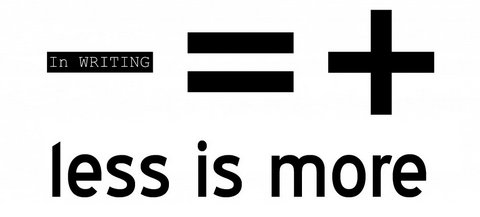Let's just apply, for a moment (and for the hell of it) some screenplay wisdom, to novels.
A scene in a screenplay exists for one of two reasons: a) to propel the narrative, and b) to reveal character. With the great scenes doing both. Let's go further by defining a 'scene' as a moment in time and space. In other words, if the scene is two guys catching up for the first time for 20 years since college, and they're sitting in a diner back in the town where they grew up (for example). That's a single SCENE. If they leave the diner and drive off to a local watering hole, it's a new scene because the LOCATION has changed. If they 'flashback' mid-scene so we (the audience) are transported to them sitting in the same seats in the same diner, back when they were 17, it's a new scene because the TIME has changed.
Let’s also remember that there are two types of 'beats' in a scene: an action beat and an emotional beat (more on this later).
Now, Screenplay 101 advice for newbies always gets you to 'show it not say it', and to always 'cut into the scene just before the action of the scene is about to happen - and cut out again as soon as it's finished'. Now, with all those points as a given, I see no reason why this logic cannot be held up to a novel? Sure, a lot of what goes on in a novel is 'in the head of the character' or 'in the voice of the omniscient narrator' - and these are conventions that are unique to the novel, rather than the film (save for the use of voice over - which should always be used sparingly in screenplays). And sure in a novel we need to describe things in a measure of detail that can be shown in a screenplay in a single shot, so we need more space on the page for that. But even with these things taken into account, I see no reason why, when writing a novel, a writer shouldn't just 'get on with story', rather than indulging in pages without end where they demonstrate how well they know how to string words together. Pages that, more often than not, neither propel the narrative or reveal character (or if it does reveal character, it does it in a 'tell' rather than 'show' type way). Because if drama = conflict (as the old saying goes), surely following the hero on the hero's journey (overcoming obstacles) is a better way of creating said conflict, than padding out a book with page after page of extraneous literary or authorial fluff, just because your publisher is expecting a 120,000 word novel rather than an 80,000 word page turner?
When a novel is adapted to the screen, the first thing done is to strip out the spine of the story from the novel (the action beats). Then, once you've fleshed that out into the obligatory 3 act structure, you try to put back in as many emotional beats as you can, without slowing the pacing down. You do it this way because the action beats (the guys leave the diner to go to the local water hole, and on the way they run over and kill a small boy) cannot be left out without the story grinding to a halt. But you can leave out (if you have to) the emotional beat where the two guys, after meeting again in the diner, flashback / remember the time they went to the self-same diner back when they were 17, after winning the big baseball game. Because the story doesn't NEED that (though it might be better if it's there, of course) as much as it needs the two guys running over the small boy.
Note: all this should be done with due reference to the novel's 'theme' and tone'.
Novels and screenplays differ from each other in many ways of course, but I suspect that 99% of all novels (especially genre novels) would be better if they just imagined their story ‘as a movie’, and edited accordingly. Because if the writer asked themselves ‘would this scene / page / chapter I’m writing end up in a movie version?’ and the answer is ‘no’; then it’s probably unnecessary, and the story (and the pacing) would be a lot better off without it (kill your darlings, kill your darlings). Most books, if we’re being honest here, would benefit from some judicious pruning. Be that unnecessary description (blaa, blaa, blaa, it’s a spooky castle, we GET IT already), unnecessary sub-plots (yes, I’m talking about those ‘alternate chapters’ that readers skim to GET BACK TO THE STORY), or be it too much authorial intrusion (take your hand of your genitals because we’re not interested in how clever you are, we’re interested in THE STORY!).
There are exceptions to every rule. And much of the advice above has to be filtered through the lens of ‘personal taste’. But in my humble opinion, in novels – just like in screenplays – LESS IS MORE.
Happy Writing!
Cheers :)
Brian M Logan
ThatActionGuy.com
A scene in a screenplay exists for one of two reasons: a) to propel the narrative, and b) to reveal character. With the great scenes doing both. Let's go further by defining a 'scene' as a moment in time and space. In other words, if the scene is two guys catching up for the first time for 20 years since college, and they're sitting in a diner back in the town where they grew up (for example). That's a single SCENE. If they leave the diner and drive off to a local watering hole, it's a new scene because the LOCATION has changed. If they 'flashback' mid-scene so we (the audience) are transported to them sitting in the same seats in the same diner, back when they were 17, it's a new scene because the TIME has changed.
Let’s also remember that there are two types of 'beats' in a scene: an action beat and an emotional beat (more on this later).
Now, Screenplay 101 advice for newbies always gets you to 'show it not say it', and to always 'cut into the scene just before the action of the scene is about to happen - and cut out again as soon as it's finished'. Now, with all those points as a given, I see no reason why this logic cannot be held up to a novel? Sure, a lot of what goes on in a novel is 'in the head of the character' or 'in the voice of the omniscient narrator' - and these are conventions that are unique to the novel, rather than the film (save for the use of voice over - which should always be used sparingly in screenplays). And sure in a novel we need to describe things in a measure of detail that can be shown in a screenplay in a single shot, so we need more space on the page for that. But even with these things taken into account, I see no reason why, when writing a novel, a writer shouldn't just 'get on with story', rather than indulging in pages without end where they demonstrate how well they know how to string words together. Pages that, more often than not, neither propel the narrative or reveal character (or if it does reveal character, it does it in a 'tell' rather than 'show' type way). Because if drama = conflict (as the old saying goes), surely following the hero on the hero's journey (overcoming obstacles) is a better way of creating said conflict, than padding out a book with page after page of extraneous literary or authorial fluff, just because your publisher is expecting a 120,000 word novel rather than an 80,000 word page turner?
When a novel is adapted to the screen, the first thing done is to strip out the spine of the story from the novel (the action beats). Then, once you've fleshed that out into the obligatory 3 act structure, you try to put back in as many emotional beats as you can, without slowing the pacing down. You do it this way because the action beats (the guys leave the diner to go to the local water hole, and on the way they run over and kill a small boy) cannot be left out without the story grinding to a halt. But you can leave out (if you have to) the emotional beat where the two guys, after meeting again in the diner, flashback / remember the time they went to the self-same diner back when they were 17, after winning the big baseball game. Because the story doesn't NEED that (though it might be better if it's there, of course) as much as it needs the two guys running over the small boy.
Note: all this should be done with due reference to the novel's 'theme' and tone'.
Novels and screenplays differ from each other in many ways of course, but I suspect that 99% of all novels (especially genre novels) would be better if they just imagined their story ‘as a movie’, and edited accordingly. Because if the writer asked themselves ‘would this scene / page / chapter I’m writing end up in a movie version?’ and the answer is ‘no’; then it’s probably unnecessary, and the story (and the pacing) would be a lot better off without it (kill your darlings, kill your darlings). Most books, if we’re being honest here, would benefit from some judicious pruning. Be that unnecessary description (blaa, blaa, blaa, it’s a spooky castle, we GET IT already), unnecessary sub-plots (yes, I’m talking about those ‘alternate chapters’ that readers skim to GET BACK TO THE STORY), or be it too much authorial intrusion (take your hand of your genitals because we’re not interested in how clever you are, we’re interested in THE STORY!).
There are exceptions to every rule. And much of the advice above has to be filtered through the lens of ‘personal taste’. But in my humble opinion, in novels – just like in screenplays – LESS IS MORE.
Happy Writing!
Cheers :)
Brian M Logan
ThatActionGuy.com


 RSS Feed
RSS Feed
